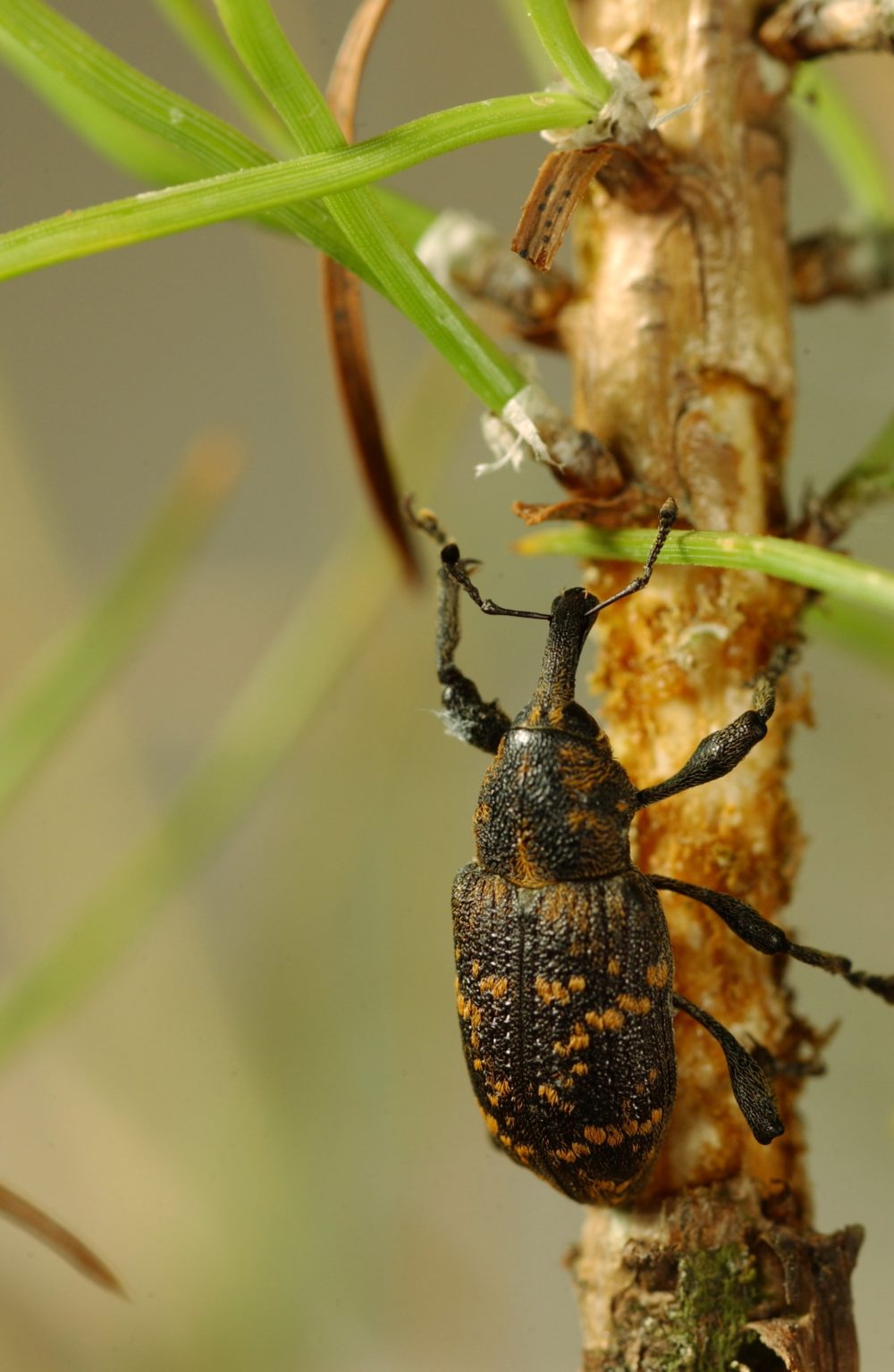Five companies have each been awarded up to £30,000 research funding to develop new techniques for managing the large pine weevil (Hylobius abietis) – the most serious pest of newly planted young trees in Scotland.
The companies – applicants to an open innovation competition from Forest Enterprise Scotland and launched by Rural Economy Secretary Fergus Ewing last year – will look to develop alternatives to current chemical pesticides.
The pine weevil is estimated to cause direct losses of around £5million to forestry across the UK every year as well as causing significant delays to the re-establishment of future forest crops.
Welcoming the announcement of the research grant awards Mr Ewing said:
“Developing innovative and successful solutions to tackle this serious pest of young trees is imperative for the health public and private woodlands across Scotland – and indeed across the UK.
“It is very heartening to note that technology companies from Scotland are well represented amongst the contract winners, and that all the research projects will bring economic benefits to Scottish forestry businesses.
“The forestry sector will be following progress with a keen interest and I wish all of the research projects well in their endeavors.”
The innovation funding has been awarded to:
- Inverness College (part of the University of Highlands and Islands) – to develop a physical, biodegradable barrier derived from locally available plant extracts and mixed with a fungi that will infect and kill weevils that come into contact with it.
- Omma Tech – to develop an ultra-low-power remote unit and camera system to detect and record the weevil population remotely, removing the need for laborious manual monitoring but allowing for better informed, timed and targeted approach to controlling weevil populations.
- Neem Co. – to develop a plant protection product derived from the seeds of the Indian neem tree that will be applied to young forest trees to discourage weevil feeding and luring them to feed on a toxic bait before they feed on any young trees.
- Forest Research – to develop a web-based decision support system to help forest planners manage the sequence and pattern of tree felling to reduce the risk of Hylobius attack and limit the opportunities for the weevils to move around the forest landscape and colonise felling sites.
- Research and Commercial Partnership – to develop an advanced monitoring system to assess populations of Hylobius abietis, and predict their damage prior to tree planting and the need for remedial action. The system will be designed to perform as a ‘trap, treat and release’ device to deliver natural biological control agents, that are active against adult weevils, to control Hylobius populations sustainably.
The project is one of the Scotland Can Do Innovation Challenge Fund challenges and will provide total funding to businesses and organisations of up to £550,000. The £9.2m fund is designed to increase the level of business innovation in Scotland by encouraging businesses and organisations to collaborate with Scotland’s public sector to develop innovative solutions to societal challenges.
Administered by Scottish Enterprise, the fund is a joint project between Scottish Government, Scottish Enterprise, Highlands and Islands Enterprise and Scottish Funding Council. Forest Enterprise Scotland is leading the project for the UK, with additional delivery support from ConFor and Forest Enterprise England.
Successful bidders will retain intellectual property rights to their ideas so that they can be seamlessly brought to market after the end of the research and development phase.
The companies now have five months to develop and prove their ideas, in a bid to win further funding of up to £200,000 for prototype testing of one or two of the proposed new control options. Testing will take place in the field and over the tree planting seasons 2019-2020 and 2020-2021.



